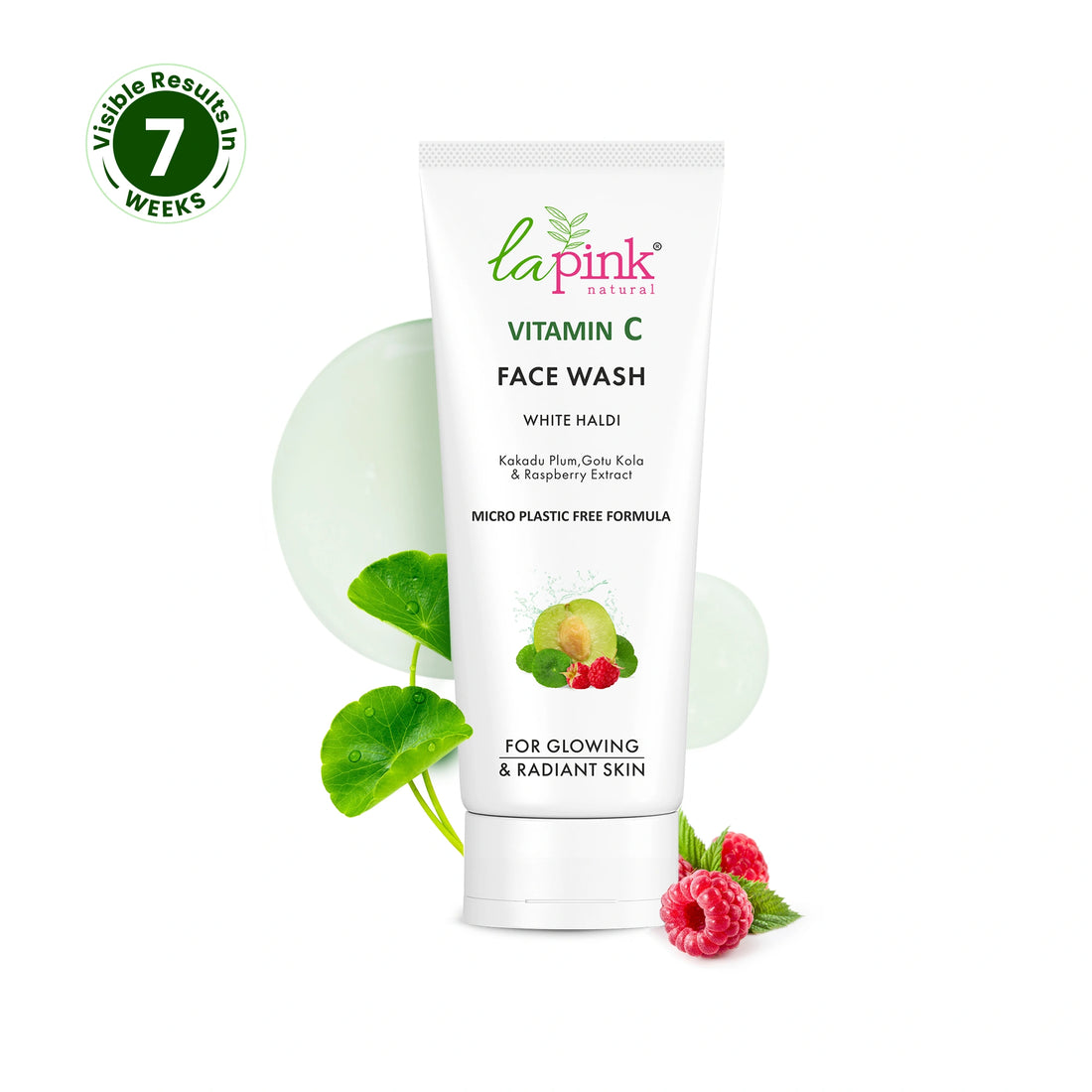Skincare Benefits of Licorice
More than just a sweet herb, Licorice is a powerhouse in the skincare industry. The root of the Licorice plant has many benefits for the skin including anti-inflammatory properties, skin-brightening properties, dealing with hyperpigmentation, skin cleansing, and a lot more. It is also suitable for all skin types which makes it an ideal inclusion in skincare products.
Treats Pigmentation and Brightens Skin Tone
If you are or you know someone struggling with uneven skin tone, dark spots or hyperpigmentation, Licorice root extract can help relieve your concerns. The active compound, Glabridin, in Licorice, helps restrict tyrosinase, an enzyme responsible for melanin production in the skin. This means less melanin, fewer dark spots, and thus, a bright skin. Studies show that Licorice helios reduce hyperpigmentation with consistent use. It is effective against melasma, sun spots, and even acne scars, all of this while being gentle on the skin.
Calms Redness and Inflammation on Skin
Licorice has an anti-inflammatory compound known as Licochalcone that helps in calming skin irritation, rosacea, eczema, and psoriasis and reduces redness. It prevents pro-inflammatory cytokines from being released and thus soothes skin against pollution and UV radiation.
Protection Against UV Damage
Of course, Licorice extract is no replacement for your sunscreen but it has the ability to boost your skin’s natural defenses against sun damage. Its antioxidant compounds act as a shield against free radicals born out of UV exposure that generally leads to premature aging and pigmentation. Licorice when paired with SPF is able to prevent future discoloration and defend your overall skin tone and texture.
Regulates Sebum Production
While this is often overlooked, one of the benefits of Licorice extract is its ability to help regulate oil production in the skin, making it a great pick for those who have acne-prone skin. Research conducted in 2022 suggests that Licorice Flavonoids have the ability to help regulate sebum levels. While it helps regulate oil production, it doesn’t compromise the skin’s moisture barrier in the process. Thus, it makes Licorice-based products a good pick for people with sensitive as well as oily skin.
Promotes Skin Healing and Reduces Scarring
Licorice has been proven to promote skin regeneration. One study shows that the hydroalcoholic extract of licorice root helps skin heal against burns, post-acne marks, and minor abrasions. It helps fasten the skin’s natural repair processes.
If we compare Licoriceto Vitamin C, another skin brightening ingredient, it is gentler on the skin and minimizes the risk of skin irritation. While paired with Niacinamide, it has the ability to reduce pigmentation faster and more effectively.
What are the Counter Effects of Microplastics on the Effectiveness of Liquorice?
While the skincare industry is slowly evolving, one challenge that remains is the presence of microplastics in most creams and serums. Microplastics are tiny synthetic polymers that are added to enhance the texture of the product or as a binding agent. Unfortunately, microplastics have the tendency to create a film over the skin which inhibits the absorption of the skincare products. When Licorice-based products are applied on the skin mixed with microplastics, it is difficult for them to work effectively and penetrate deeply to target pigmentation or inflammation. La Pink offers 100% microplastic-free products that promise efficient targeting and results that are visible.
How to Use Licorice in Your Skincare Routine?
Licorice extract is a versatile ingredient and is used in a whole array of skincare products such as cleansers, toners, serums, spot treatments, and moisturizers. You just need to understand the formulations and concentrations to be used. Serums and spot correctors with a concentration of 1%–5% Licorice extract are ideal, while this concentration can go up for creams and lotions.
The best way to add Licorice extract to your skincare routine would be:
- Gently cleanse your face using a good face cleanser or face wash to get rid of dirt and build-up on the skin.
- Next, use a toner and follow up with a serum having Licorice extract.
- Do not forget to follow up with a lightweight moisturizer and sunscreen.
If you have sensitive skin, you can pick skincare products that are paired with Licorice extract and soothing agents like aloe vera. Do a patch test before adding it to your daily skin regime, especially if your skin reacts quickly.
Licorice is generally suitable for all skin types, especially if your skin is sensitive. However, consult your dermatologist for better advice.Loaded with natural anti-inflammatory, brightening, and healing properties, Licorice has become a staple in the modern skincare industry promising exceptional results. Be it fading stubborn dark spots, calming redness, or simply a radiant complexion, it is a gentle yet powerful ingredient worth giving a try.

















